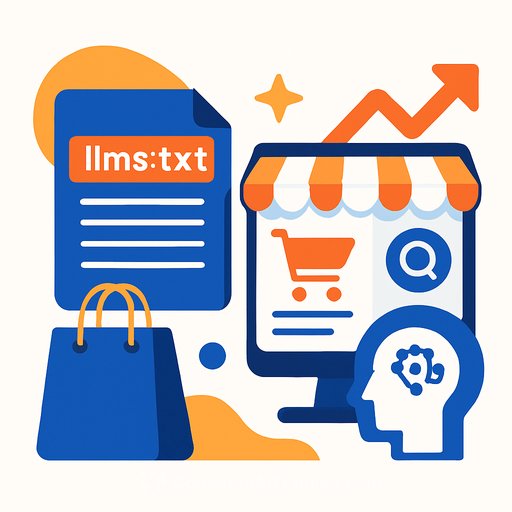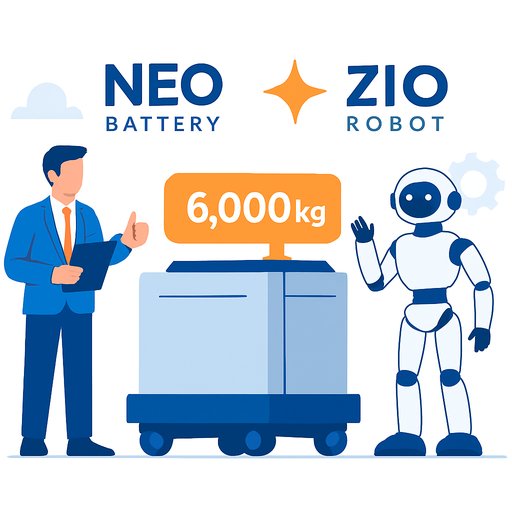A Proposed Standard for AI and Ecommerce
Large language models (LLMs) like ChatGPT, Gemini, and Claude are increasingly used to assist online shopping experiences. A new proposed standard, llms.txt, aims to guide these AI systems to relevant web content. This file works similarly to robots.txt and XML sitemaps but focuses on helping ecommerce sites surface product information directly to AI-powered shopping platforms.
As consumers turn to generative AI platforms for shopping advice, ecommerce merchants have a growing opportunity to improve their visibility. For example, ChatGPT can recommend specific products and stores when asked questions like “What are the best trail-running shoes?”
AI Visibility
The llms.txt standard was proposed in September 2024 to help LLMs better understand and process content from complex websites. If adopted, this nonbinding standard would provide websites with a way to influence how AI systems crawl and index their pages. The idea is gaining interest from AI companies like Perplexity and Anthropic (Claude) and the broader web community.
What Is llms.txt?
Llms.txt is a machine-readable file designed for AI systems. It signals which parts of a website are available for AI use and which are easier to summarize and cite. Like robots.txt, it can “allow” or “disallow” AI tools from using specific sections of a website.
For example:
User-Agent: openai
Disallow: /User-Agent: anthropic
Disallow: /private/User-Agent: *
Allow: /
Though LLMs are not required to follow these directives, these signals help indicate which content is useful. Ecommerce sites might block AI from indexing sensitive areas like shopping carts or checkout pages to save AI resources.
Example blocking sensitive paths:
User-Agent: *
Disallow: /cart/
Disallow: /checkout/
And example allowing helpful content:
User-Agent: openai
Allow: /shopping-guides/
Allow: /blog/
Allow: /products/
While the allow-disallow feature is well-known, the core purpose of the file is to provide structured content for AI consumption.
Structure
Many llms.txt files use Markdown to organize content links, making it easy for AI to follow. Here’s a simplified example from a sci-fi memorabilia site:
- sci-fi-memorabilia-example.com
Premium science fiction collectibles, props, replicas, and guides. - Docs
- Star Wars Lightsaber Replica: Features, display use, product link.
- Top 10 Sci-Fi Collectibles
- Blade Runner Blaster Guide - Optional
- Blog on cosplay tips
At the bottom, the llms.txt file specifies which user agents can access which paths, guiding the AI to useful content.
Simplified Content for Ecommerce
Ecommerce sites can link Markdown versions of product pages in their llms.txt. These Markdown files strip out navigation and scripts, leaving only the essential, factual product details that an AI needs to summarize and reference.
For example, a product Markdown file might look like this:
- Star Wars Lightsaber Replica – Luke Skywalker Edition
A premium collectible replica of Luke Skywalker's green lightsaber from Return of the Jedi. Built for display, cosplay, or collection. - Overview
Officially licensed, with an all-metal hilt, removable LED blade, and sound effects. Comes with a stand and collector packaging. - Key Features
- Green LED blade with ignition and clash effects
- All-metal hilt modeled after the movie prop
- Removable blade for display
- Display stand and collector box included
- Powered by AA batteries (not included)
- Licensed by Lucasfilm - Who It's For
- Collectors
- Cosplayers
- Gift buyers
- Sci-fi fans - Source
Product page - Tags
star-wars, lightsaber, luke-skywalker, collectible, replica, prop - Last Updated
2025-07-12
This clear structure helps AI quickly grasp what the product is, why it matters, and where it comes from — making it easier to answer user queries with accurate citations.
During Interface: Real-Time AI Assistance
The llms.txt system supports AI at the moment a user interacts with a chatbot. For example, when a user asks about replica lightsabers, the AI can fetch the Markdown file from the site, instantly process the information, and deliver a concise, accurate response.
Think of these product Markdown files as CliffsNotes for AI — clean, focused summaries tailored for quick consumption.
AI Discoverability
Llms.txt is similar to early SEO efforts that helped websites rank in search engines. This emerging standard aims to optimize content for AI chatbots and answer engines, a practice some call “LLM SEO.”
While it’s still early, llms.txt shows that both AI companies and website operators want better ways to index and reference web pages. This could influence how ecommerce and other sites ensure their content appears in AI-driven shopping and information platforms.
For those interested in deepening their AI skills and understanding how to work with tools like ChatGPT and other LLMs, there are practical courses available at Complete AI Training.
Your membership also unlocks:





